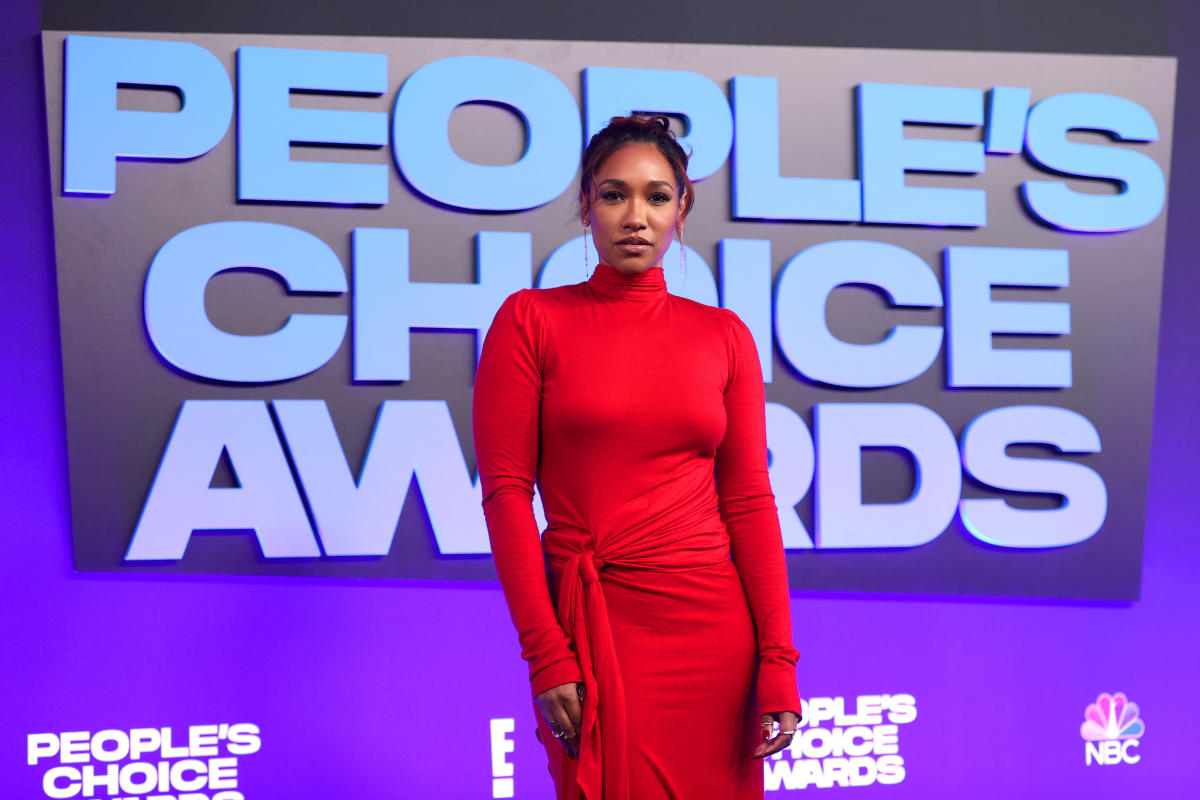Candice Patton, of TV’s The Flash, says online harassment — and not feeling protected by the show —almost led her to quit early on.
The actress, who has portrayed Iris West since 2014, said on The Open Up Podcast that she didn’t feel protected by The CW or Warner Bros. TV from racist and toxic fans. She also struggled on the set, not feeling she got the same treatment as her white co-stars. The “very toxic” situation left her “severely unhappy” and she considered quitting during Season 2.
“Now people understand it a little better and they understand how fans can be racist, especially in genre, misogynistic all of that, but at the time it was kind of just like, ‘Yeah, that’s how fans are, but whatever,'” Patton recalled.
“Even with the companies I was working with, The CW and Warner Bros., I think that was their way of handling it,” she continued. “We know better now. It’s not OK to treat your talent that way, to let them go through abuse and harassment. But for me, in 2014, there were no support systems. No one was looking out for that. It was free range to get abused every single day.”
Patton said “no social media protocols” were “in place to protect me,” adding, “It’s just not enough to make me your lead female and say, ‘Look at us, we’re so progressive. We checked the box.’ Because it’s great, but you’ve put me in the ocean alone around sharks… I can get eaten alive out here.”
Patton said that there have to be people in positions of power who “understand my experience and understand the Black experience, the Black female experience who can say, ‘OK, she needs protection.’ Anytime you hire anyone who is a minority of any kind, you have to be prepared to protect them. Because in the real world, we are not protected. So just because you put us in a fancy Hollywood TV set or film set with the hair or makeup, and you assume we’re safe, we’re not safe.”
Patton said it’s “like if I get pulled over at 2 a.m. in Jackson, Mississippi, by a white cop. Do you think he gives a s*** that I’m Candice Patton from The Flash? It doesn’t matter. We still need protection because the world sees us in a certain way. So when I step onto set and everyone working around me is white — everyone working around me is white — I’m not protected. I will never be protected. That’s not to say everyone has bad intentions, but they have blind spots. They have a lot of blind spots and that can also contribute to my harm. It’s been a learning experience I’m sure for companies and corporations and productions.”
Patton said it was the “day-to-day stuff” in her workplace that frustrated her more than hate tweets from “Joe in Indiana.” She cited examples including how her publicist had to request that The Flash Instagram account follow her — when all her white castmates were followed.
“It was hard,” she said. “I wanted to leave the show as early as Season 2,” she admitted. “I remember being like: I can’t do this. I’m not going to make it through. I don’t want to be here. I’m severely unhappy. A lot of the reason I stayed — A, I was under contract — then also I felt a huge responsibility because the fans loved this character and it was such iconic casting and such an iconic role. I knew how much this meant to so many people that I felt a responsibility to stay in a space and a place that was probably very toxic for my mental health.”
Patton says now years later, “It’s more leveled out.” She also credited the difficult situation for making her “so tough… There is a level of like: Do not f*** with me. I’m not one to play with… That came from fighting my way through.”
The actress said that while she very much loves her character, she’s nothing like her and has felt her identity has been swallowed up while she’s been in the role. For that reason, the ninth will “likely will be my last” — though added a “never say never.”
Patton said leaving the show, which ended its eighth season last month, is to “separate myself from The Flash and Iris West and this identity… While I’m so grateful and have so much love for her and the show and what it’s done for my life, it’s a necessity for my own … identity and my own self-growth to lay her to rest and move forward.”
As for her counterpart’s fate, “I think a part of her needs to die so that I can live,” she said.
Reps for The CW and Warner Bros. TV did not respond to requests for comment.




